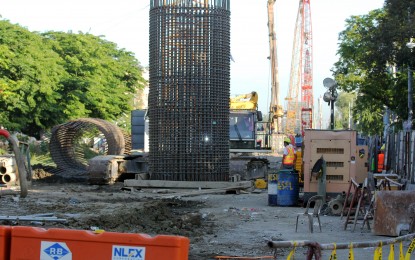QUEZON CITY (PIA) -- Fitch Ratings, a credit rating agency, affirmed the Philippines' credit rating as 'BBB' and upgraded its outlook from 'negative' to 'stable' on Tuesday (May 23).
Finance Secretary Benjamin Diokno welcomed the improved outlook, attributing it to the country's strong macroeconomic fundamentals. He cited the robust growth of the economy in 2022 at 7.6% and 6.4% in the first quarter of 2023 as evidence of these fundamentals.
Fitch's rating report highlighted several factors for the improved outlook, including the Philippines' expected return to strong medium-term growth post-COVID-19, sustained reductions in the country's debt-to-GDP ratio, and a sound economic policy framework. Fitch forecasts the Philippines' real GDP growth to exceed 6.0% over the medium term, surpassing the median 'BBB' growth rate of 3.0%.
Secretary Diokno emphasized that Fitch's rating reflects the country's favorable investment climate and the steady improvement of labor and employment conditions.
A 'BBB' rating indicates low expectations of default risk and the ability of the country to meet its financial commitments. It also signals creditworthiness, enabling the Philippines to access funding from development partners and international capital markets at lower costs.
Fitch's decision aligns with the National Government's fiscal consolidation process and assessment of sustainable debt dynamics. The Department of Finance (DOF) aims to achieve stability in the country's macroeconomic fundamentals through prudent fiscal management and structural reforms. These reforms include increased investments in infrastructure and the implementation of tax revenue measures under the Medium-Term Fiscal Framework, which are currently being deliberated and expected to begin in 2024.
To support the fiscal reforms, the Development Budget Coordination Committee (DBCC) has proposed additional tax measures, such as higher excise taxes on sweetened beverages and reforms to the mining fiscal regime. The government also plans to enhance its tax administration system and pursue expenditure reforms, including the National Government Rightsizing Program and reforms to the Military and Uniformed Personnel (MUP) pension system.
To maintain economic growth and address global uncertainties, the government has reconstituted the Economic Development Group (EDG), co-chaired by Secretary Diokno and National Economic and Development Authority (NEDA) Secretary Arsenio Balisacan. The EDG will focus on expediting infrastructure project implementation and mitigating the impact of global uncertainties. Additionally, the Inter-agency Committee on Inflation and Market Outlook (IAC-IMO) has been created to address inflation through measures that address supply issues, enhance monitoring, and ensure a stable energy supply. (DOF/PIA-NCR)



